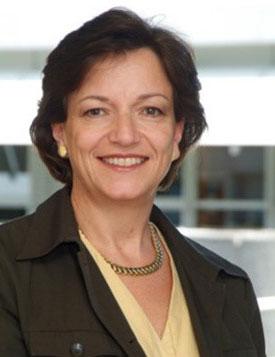You are here
Wadi Al Arab System II water conveyance project begins operation
By JT - Nov 12,2020 - Last updated at Nov 12,2020
AMMAN — The Water Ministry has started pumping 10 million cubic metres (mcm) of water to improve supply to the northern areas, which suffer from water shortages due to the increased demand in light of the Syrian refugee influx and the COVID-19 crisis, according to a ministry statement.
The dual crises of COVID-19 and refugee influx have increased the demand for water by 10 per cent, the statement said.
On Sunday November 8, 2020, His Majesty King Abdullah attended the opening ceremony of the $129.5 million Wadi Al Arab System II water conveyance project in Manshiyeh village, in Northern Shuneh in the Jordan Valley.
His Majesty toured the state-of-the-art drinking water treatment plant and the control centre of the project.
The event was also attended by Prime Minister and Minister of Defence Bisher Al Khasawneh and Minister of Water and Irrigation Motasem Saidan
The Water Authority of Jordan (WAJ) has implemented and completed the construction of Wadi Al Arab System II water conveyance project in the northern governorate of Irbid and the second of its kind in Jordan, the statement said.
The project aims to reduce the current water deficit in northern governorates by providing treated water to comply with the Jordanian standards as well as WHO guidelines from a planned new source of raw water, according to the statement.
This project was undertaken to provide additional water to the Yarmouk Water Company service area, which comprises the four northern governorates of Irbid, Ajloun, Jerash and Mafraq.
The raw water will come from additional quantities to be transferred from Lake Tiberias and groundwater from the Mukheiba wells and Al Wehdah Dam to the King Abdullah Canal (KAC).
The water produced and supplied from this project is intended for the Irbid Governorate, although any surplus water could potentially be transferred to neighbouring governorates, according to the statement.
The project became a reality through a combination of soft loans from the European Investment Bank (EIB) and the Agence Française de Développement (AFD) and a grant from the European Union towards the costs of the project construction, the statement said.
In addition, a grant by USAID secured the design cost of the project. The American consultant, CDM Smith International, that designed the project was also contracted through the construction stage for supervision and quality assurance.
A Turkish joint venture contractor, MAPA-Ozaltin, with experience in similar infrastructure projects in the Middle East, Africa and Europe, was contracted to construct the project.
The project construction began in January 2017 and concluded in July 2020. The project also includes an operation, maintenance and training component that will commence after the completion of construction and continue for a period of two years that will enable the contractor to train the Yarmouk Water Company, engineers and technicians to ensure a smooth transfer of the facilities to the Yarmouk Water Company.
The project components include the following:
▪ A raw water intake from the King Abdullah Canal (KAC) and low lift pump station located adjacent to the KAC on the southside of Manshiyeh. The intake pump station will include fine and coarse screens, low lift pumps and chlorine dioxide generators.
▪ A new water treatment plant (WTP) constructed on land to the east of Manshiyeh.
▪ A 25.6km 1200mm transmission pipeline to convey the treated water has been executed from the WTP east of Manshiyeh through the towns of Sama, Tabeah and Kofer Youba and connecting to Zabda Reservoir in Irbid.
▪ Four pump stations were constructed along the transmission pipeline to lift the treated water from the treatment plant to the Zabda Reservoir.
The Ministry of Water and Irrigation extended its appreciation and gratitude to all who contributed to the successful completion of the project including the funding agencies: The European Investment Bank and the Agence Française de Développement (AFD), European Union, USAID towards the costs of the project construction. In addition, a grant by USAID, the consulting engineer, CDM Smith International, the contractor, MAPA-Ozaltin, the Yarmouk Water Company, the Electrical Distribution Company and all other governmental agencies.
Related Articles
AMMAN — Work is under way on a technical assistance scheme supported by the European Investment Bank (EIB) to increase the effectiveness, qu
AMMAN — The Wadi Al Arab Water Conveyance Project must be ready before the end of the year, to be at least partially operational, in order t
AMMAN — The Water Ministry on Thursday announced the start of executing a project to convey water from the new Abu Alanda Reservoir to the K















